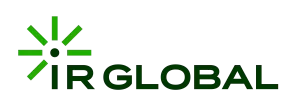- within Accounting and Audit topic(s)
- in United States
- with Finance and Tax Executives
Accountants tend to be polite and accommodating with colleagues and Clients. That's a good thing!
But it also opens them up to interruptions which can have adverse effects on productivity and motivation. As we work with many Accountants on process improvement, we often see that interruptions are a major obstacle to efficiency.
So we studied interruptions in more detail... and here is some guidance which could be valuable to many Accountants.
What's the ideal working situation?
Success in any job requires focus... and this is especially true for Accountants. Accountants perform best when they begin their work, 'get into a groove', make good progress and become energised and excited to continue and complete tasks on time and accurately.
What's the challenge?
Interruptions inevitably occur... for example:
- Co-worker Abigail stops by saying 'Can you remind me what a negative inventory report is?'
- Admin Carla mentions she's having difficulty accessing the bank records of Client B.
- Co-worker Betty asks, 'What's the name of the new bookkeeper working over at Client A?'
- Client B calls to ask about an item on their last invoice.
- Co-worker Dave texts with a reminder that the lunch venue has changed.
What are the consequences of interruptions?
- The brain shifts gear and focus is lost, along with any sense of excitement or satisfaction.
- Positive momentum and progress slows, maybe even stops.
- Restarting the task is difficult because we cannot easily pick up where we left off.
- Errors tend to increase when people stop and restart jobs.
Is this backed by data?
Yes! According to Erick Altmann, a professor at Michigan State University, even a two-second interruption is enough for people to lose their thread. Our brains can take 8 to 25 minutes (depending on the complexity of the task) to switch gear, reorient and regain momentum.
Research from UC Irvine on office interruptions suggests that:
- 12 minutes 40 seconds is the average time spent on a task before being interrupted.
- 25 minutes 20 seconds is the average time elapsed before returning to work on the same task.
- 15 minutes is the average time required after resuming a difficult task to get back to the same level of intense concentration.
- 8 seconds is the length of interruption which results in twice the number of computer errors.
- 63 is the percentage of tasks that are interrupted in open plan offices.
- 49 is the percentage of tasks that are interrupted in private offices.
What can Accountants do regarding interruptions?
- Awareness: Make the entire team aware that interruptions have negative consequences. Encourage sensitivity to time: A culture in which people greatly value their time (and that of their colleagues) will inspire habits which reduce interruptions.
- Use meetings wisely: A Daily Huddle, Weekly Planning meeting and other meetings are designed to reduce the need for interruptions later. Encourage people to raise questions in meetings.
- Be unavailable to avoid interruptions: Interruptions are a two-way street. Signal clearly to your colleagues when you are not available. They will understand [Some Accountants use a traffic light system to indicate their status (green = available; amber = emergencies only; red = unavailable)].
- Improve training: Questions arise on subjects which people ought to know the answer to. If they are properly trained, some interruptions can be avoided.
- Encourage a culture of problem solving: Before asking questions, people should - at least - consider a solution. In many cases, they'll figure out the answers on their own.
- Have the team write down their questions: This forces people to think in detail about what they are asking and to consider potential solutions. It's good discipline and creates a valuable record.
- Create a knowledge database: Archive questions and solutions. You don't need to draft lengthy explanations, even a quick voice recording can be a valuable resource when properly archived.
- Improve Client Management: Set out for Clients how, when and who will communicate with them. Otherwise (some) Clients will make contact frequently and interfere with your work.
The content of this article is intended to provide a general guide to the subject matter. Specialist advice should be sought about your specific circumstances.
[View Source]

